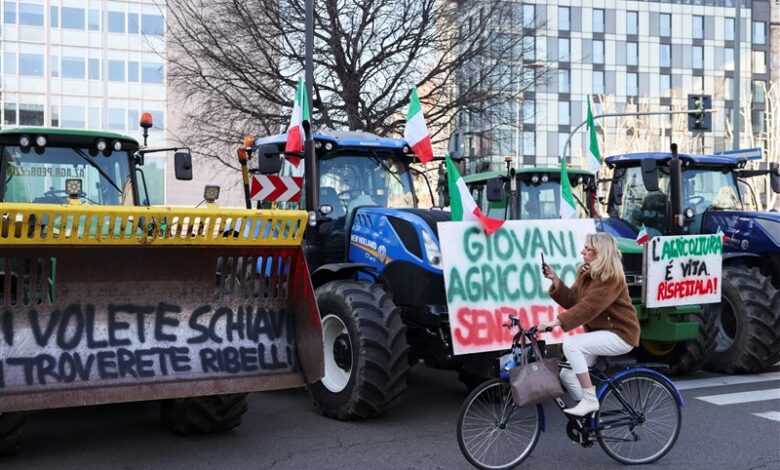European Parliament’s vote to weaken environmental rules in favor of farmers

| Considering the widespread protests of European farmers, the European Parliament bowed down to some of the demands of this group and voted to weaken the environmental rules in their favor. |
According to the report of the international group Tasnim news agency quoting After weeks of protests by farmers, the European Parliament has withdrawn some environmental regulations in agriculture, according to the Tagus Shaw newspaper. These changes were approved in an accelerated procedure, and some are even applied retroactively. Agriculture has opened. MEPs in Strasbourg voted to allow farmers more flexibility in complying with environmental regulations. Changes in the Common Agricultural Policy (CAP) include standards intended to ensure good agricultural and ecological soil conditions.
Basically, farmers should Adhere to EU agricultural subsidies worth billions. These include fallow land specifications, buffer strips along water bodies, and crop rotation designed to ensure that the soil is not affected by indiscriminate agricultural use.
For example, until now, farmers were obliged to leave part of their agricultural land fallow or use it unproductively. They can now do so voluntarily until at least 2027. They should be rewarded for this by EU countries. EU countries should be given more leeway when it comes to requirements for the cultivation of fish crops. to become arable. This will be especially beneficial for livestock farmers who have turned to grain cultivation due to poor business. to suffer, the requirements of crop rotation should also be weakened for them. According to these requirements, companies only have to grow different types of plants, but they no longer have to change the species every year.
Also stipulated in these plans Small farms with an area of less than ten hectares have been exempted from controls and sanctions related to environmental requirements. Many of the planned changes in the CAP will come into effect in 2025, but some will be retroactively enforced until January 1, 2024. Therefore, if companies have not yet met the requirements, they will avoid sanctions.
Farmers across Europe have been putting pressure on politicians for a long time. They have criticized and protested, among other things, they complain about excessive bureaucracy. At the beginning of the year, they took to the streets in many EU countries and demonstrated, sometimes violently. The EU Commission clearly came close to farmers with its proposals.
Norbert Linz, head of the Agriculture Committee in the European Parliament, called this vote “a great success for European agriculture and He praised it. He emphasized that the farmers’ protest was heard and delivered. He also asked the German Federal Minister of Agriculture to implement these decisions one by one.
EU countries still need to agree on this, but this is considered very likely. The new requirements may come into effect this year. The project proposed by the Commission was approved by the Parliament with an accelerated procedure.
end of message/
| © | Webangah News Hub has translated this news from the source of Tasnim News Agency |


